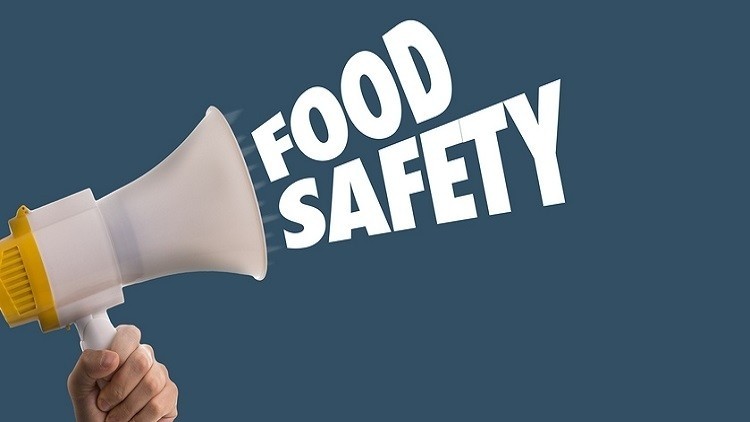
In-country like India, there are many measures taken to keep safe and pure delivery of food items and they are approved under a body named FSSAI. It’s a department that takes good care of the food products processed and distributed in India.
They allow Indian food business operators to get registered under FSSAI and take the license to print FSSAI logo and FSSAI license number on their food packages. So, this time in this article we are going to explore the food safety laws of 2021 and the process of fssai online registration.
Table of Contents
Registration with the FSSAI
“Food Safety and Standard Authority of India” is an acronym for FSSAI. The FSSAI is a non-profit organization that works under the Ministry of Health.
Any person or organization that is qualified for an FSSAI food safety Registration or License must first register with the FSSAI. Every Food Business Operator aims to maintain high food quality standards to ensure customer protection and satisfaction.
The Food Safety and Standards Authority of India (FSSAI Registration) is a key player in the development of control procedures. There are various food safety laws in India which are needed to take care before registering for FSSAI license.
Food safety laws in India: Processed in 2021
NOTIFICATION- 8th March 2021
No. Stds/SP-15/T[T(IMST)].—Whereas the draft of some laws further to revise the Food Safety and Standards (Prohibition and Restrictions on Sales) Regulations, 2011, was issued as needed by sub-section (1) of section 92 of Food Safety and Standards Act, 2006 (34 of 200), vide information of the Food Safety and Standards Authority of India number Stds/SP-15/T[T(IMST)], dated the 10th November 2020, in the Gazette of India, Unusual, Part III, Section 4, drawing questions and advice from the persons likely to be affected thereby, before the expiry of the time of 60 days from the date on which the copies of the Official Gazette including the said notification were made open to the public.
And whereas the copies of the said Official Gazette were made open to the public on the 18th November 2020.
And whereas the questions and advice received from the public regarding the said draft regulations have been recognized by the FSSAI.
Presently, hence, in the exercise of the powers conferred by section 92 of the said Act, the Food Safety and Standards Authority of India hereby makes the following regulations further to improve the Food Safety and Standards (Prohibition and Restrictions on Sales) Regulations, 2011, namely: –
Regulations

- (1) these rules may be named the Food Safety and Standards (Prohibition and Restrictions on Sales) 3rd Amendment Regulations, 2021.
(2) They shall get into force on 8th June 2021.
- In the FSS (Prohibition and Restrictions on Sales) Regulations, 2011,-
(A) in regulation 2.1 relating to ―Sale of certain admixtures forbidden”, in sub-regulation 2.1.1, after clause (10) the next clause shall be included, namely: –
“(11) Any Multi-source edible vegetable oil including Mustard Oil-manufactured on or after 8th June 2021.”
(B) in regulation 2.3 linking to ―Prohibition and Restriction on sale of some products”, in sub-regulation 2.3.14, for clause (11), the following shall be substituted, particularly: –
“(11) The Multi-Source Edible Vegetable Oil must not be traded in loose form. It shall be traded in a sealed package measuring not more than 15 Kilograms. The container having Multi-Source Edible Vegetable Oil must be tamper-proof. It must also not be traded under the common or general name of the oil used in the blend but shall be traded as – Multi-Source Edible Vegetable Oil. The sealed package needs to be sold or offered for sale only under AGMARK certification mark showing the label declarations as given in the Regulations besides other labeling terms under the Regulation.”
- FSSAI Pushes For Changes In Import Regulations For Foreign Food Products
November 18, 2020
The Food Safety and Standards Authority of India (FSSAI), India’s national food regulator, has introduced amendments to import regulations that call for mandatory registration and auditing of international food manufacturing facilities that import specific food products.
The Food Safety and Standards Authority of India (FSSAI) is planning to roll out its cloud-based Food Safety Compliance System (FoSCoS) across the country.
26 October 2020
The FSSAI plans to roll out its cloud-based (FoSCoS) to the entire country on November 1, 2020, after being operational in Tamil Nadu, Delhi, Gujarat, Odisha, Chandigarh, Goa, Manipur, Puducherry, and Ladakh since June 2020.
- Sweet Shop owners are required to show the ‘Expiry Date’ for unpackaged sweet products, according to the FSSAI.
September 27, 2020
Beginning October 1, 2020, the Food Safety and Standards Authority of India (FSSAI) would require sweet shop owners to display the expiry date for their unpackaged sweet items.
The owners of sweet shops have also been required to show production dates, but this is not a requirement.
FSSAI: Junk Food Sale Limited in Close Vicinity to School Campus
The selling of fast food within 50 meters of a school campus has been prohibited by the FSSAI. Advertising has also been prohibited. The FSSAI aims to encourage schoolchildren to eat a healthy, balanced diet.
FBOs Get More Time from FSSAI for Complying with Food Safety Regulations
28th June: The Food Safety and Standards Authority of India (FSSAI) has agreed to give FBOs and distribution agencies more time to comply with the Food Safety and Standards (Recovery and Distribution of Surplus Food) Regulations, 2019. The deadline for enforcement has been extended until January 1st, 2021, according to a notification dated June 25th, 2020.
Feb 22, 2020: Food Safety A Marathon- FSSAI CEO
New Delhi, India- The country hasn’t tackled all aspects of food safety and nutrition, but the food industry has “excellently diagnosed the disease and established a treatment regimen,” according to the outgoing FSSAI chief executive in a social media post aimed at food companies.
Feb 17, 2020: Coronavirus Outbreak- FSSAI Working To Develop Hygiene At Food And Meat Markets
Given the deadly coronavirus outbreak in a Chinese meat market, India’s food regulators, the FSSAI (Food Safety and Standards Authority of India), have announced increased efforts to improve hygiene and sanitation in the region.
Procedure for Obtaining fssai online registration
- The fssai online registration is started by filling and submitting Form A (application) to the Food and Safety Department. Also, must take care of food safety laws in india.
- This application can be accepted or it may be denied by the Department within 7 days from the date of receipt of an application and the denial has to be implied to the applicant in writing.
- If the application is allowed, then the department will give a registration certificate and FSSAI Number and the photo of the applicant.
- FBO should prominently present the certificate of registration at the place of business during working hours.
The common documents needed for Basic, State, and Central Registration are a passport photo and a photo ID proof. For State and Central license, the following important documents will be required according to food safety laws in india:
- Form B filled out and signed
- Evidence of address
- The following is a list of food categories and items.
- The planned location’s layout plan
- List of equipment that has received a no-objection certificate from the municipality
- Certificate of incorporation
- List of the directors and associates.
- AOA and MOA are two words that are used interchangeably.
- Import Export Code (IEC code)
- Water test report
For more details about FSSAI registration you can connect with Tax Consultants, they will guide you completely.
FSSAI license validity
The validity of a fssai licence ranges from one to five years, depending on the number of years chosen by the food administrator. In any case, the cost of the permit rises with the number of years he has associated with. According to FSSAI regulations, the food business operator must apply for renewal of the license within 30 days of its expiration date. A late fee of Rs.100 is charged for each day that an FSSAI Renewal Application is filed after the expiry date.
FSSAI License Renewal
The FSSAI license is required to start a food company, and it is also required to renew the license. The license is valid for one year or five years, so the company must apply for renewal 30 days before the current license expires. The Food Safety and Standards Authority of India (FSSAI) has launched an online application named the Food Licensing and Registration System (FLRS) that allows businesses to apply for licenses online.
The FLRS is used to grant licenses and entitlements in five Regional Offices. They are as follows:
- New Delhi, Northern Region
- Kolkata, Eastern Region
- Guwahati
- Mumbai and Kerala are located in the western region.
- Chennai is the capital of the Southern Region.
Conclusion
If anyone breaks the rules, they will have to pay a fine. A tax or cash payment will be imposed as a punishment. In the event of a serious breach or several accounts of rule-breaking, the punishment would be to keep the company under control, revoke the license, and conduct regular inspections.
So, it’s better to follow Food Safety Laws and get fssai online registration done. You can take the assistance of CA Services Online like Legalpillers. They provide affordable services for fssai licence at basic, state, and central level.


Leave a Reply